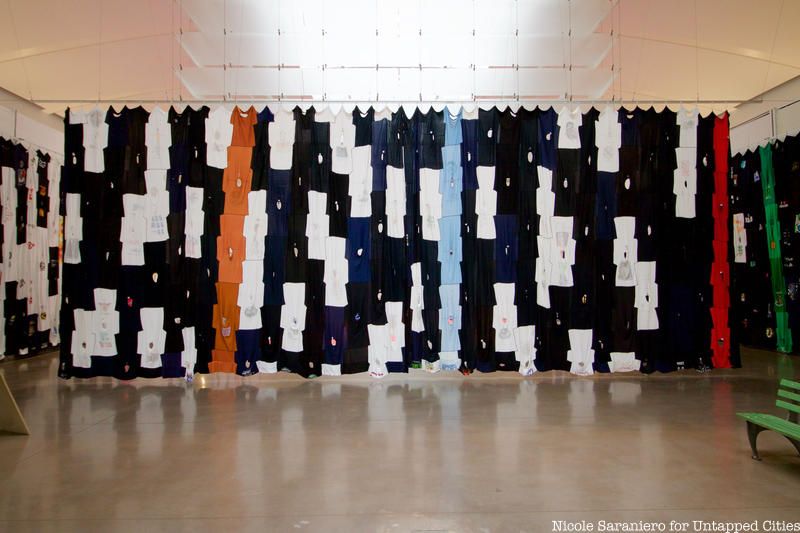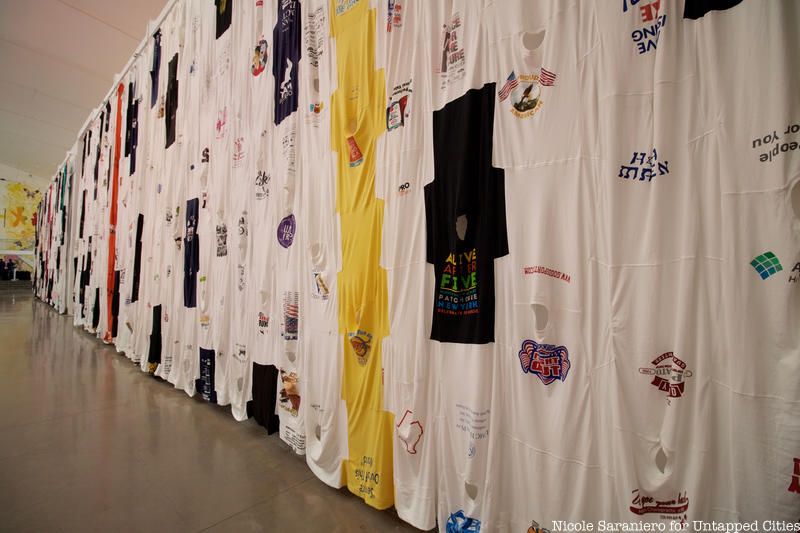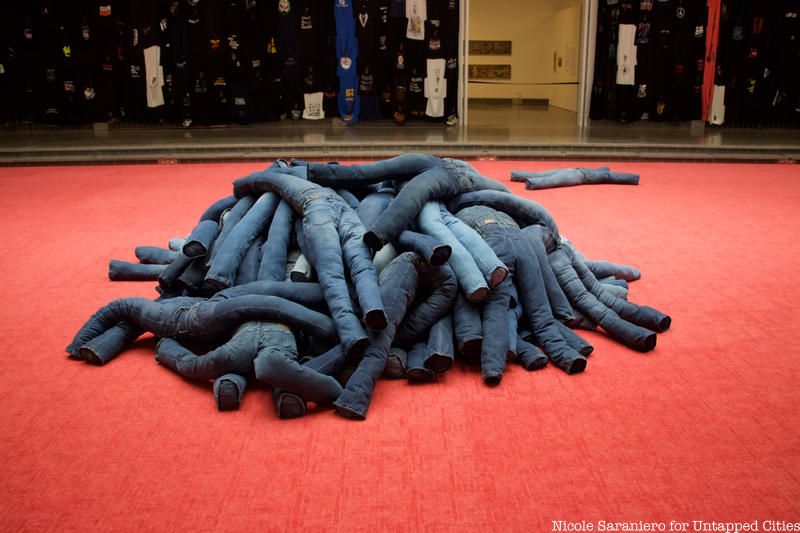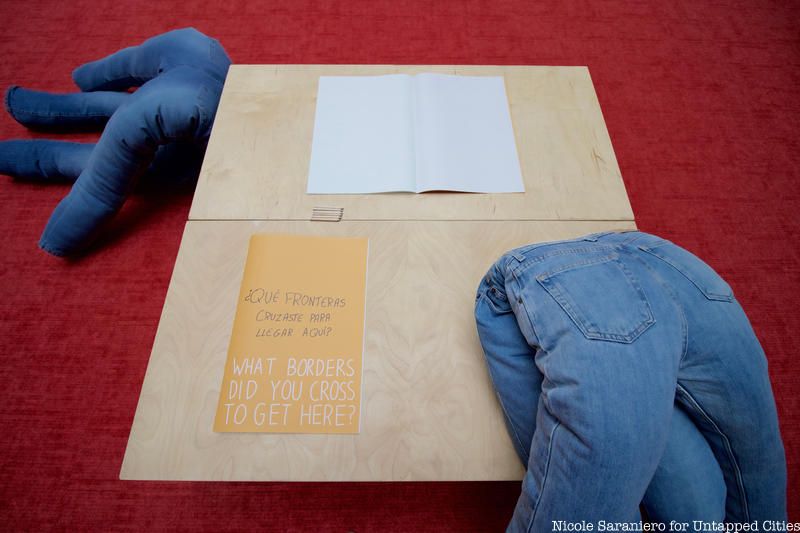Last Chance to Catch NYC's Holiday Notalgia Train
We met the voices of the NYC subway on our nostalgia ride this weekend!


Usually museums strongly discourage even touching the art on display, but at a new exhibition in the Queens Museum, you can rearrange and even sit on a new installation. Fade into Black: sit, chill, look, talk, roll, play, listen, give take, dance, share, by Mexican artist Pia Camil is an interactive new piece at the museum for the Fall season. The work transforms the main atrium with giant curtains of sewn together T-shirts, and stuffed pairs of jeans which create a sculptural element that guests can interact with. Fade Into Black invites visitors to connect with the art in a deeper and more meaningful way.

Fade into Black is comprised of six giant curtains made up of hundreds of second-hand T-shirts sewn together. The T-shirts are emblazoned with logos, slogans and images that promote sporting events, birthdays, political campaigns, charitable causes, volunteer events and more. Most were designed in the United States, then manufactured in Latin America or Southeast Asia, imported into the United States to be worn and discarded, then exported to other countries. In this case, most of the T-shirts on display came from secondhand markets in Mexico City.

The installation invites visitors to look at border politics and our habits of overconsumption, but in a more playful and accessible way. Sitting in the middle of the T-shirt curtains are piles of stuffed jeans spread out across the red carpeted floor of the “sunken living room.” Artist Pia Camil wants this area to be a inclusive space, a place where visitors can be comfortable, sit, relax and talk about the art or whatever they want to talk about. “Museums can be used in different ways that promote meaning and critique through just being able to have a nice exchange with someone rather than just observing the work in a non-personal way,” says Camil.

The stuffed jeans have an uncanny anthropomorphic quality which makes them look like bodies. What does it mean to be sitting on these “bodies”? The jeans, like the T-shirts, were purchased in second-hand markets in Mexico City. They represent how the typical American uniform of jeans and a T-shirt has become a global one, and as visitors place themselves in the installation, they become part of the global exchange.

Artist Pia Camil notes that much of her work is inspired by the communities in which they are shown. “The future of museums lies in community work,” she said, and she is excited to work with the Queens Museum which is located in one of the most diverse communities in the world. In the installation, there is a table with notebooks where guests are encouraged to write down their answers to the question, “What borders have you crossed to get here?” In conjunction with the installation, the Museum will host a series of events including a screen-printing workshop with Mobile Power Print, a multigenerational collective based in Corona, New York.
Fade into Black will be on display, along with the other new exhibitions which debuted this month at the Queens Museum, until February 16th, 2020.
Next, check out 14 New Public Art Installations to Discover in NYC October 2019
Subscribe to our newsletter